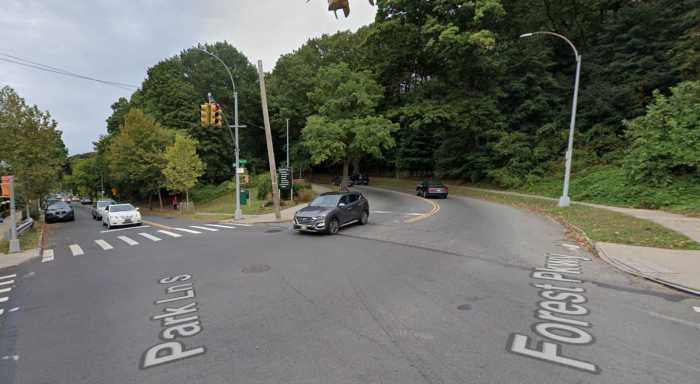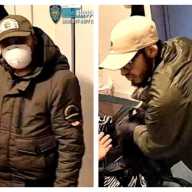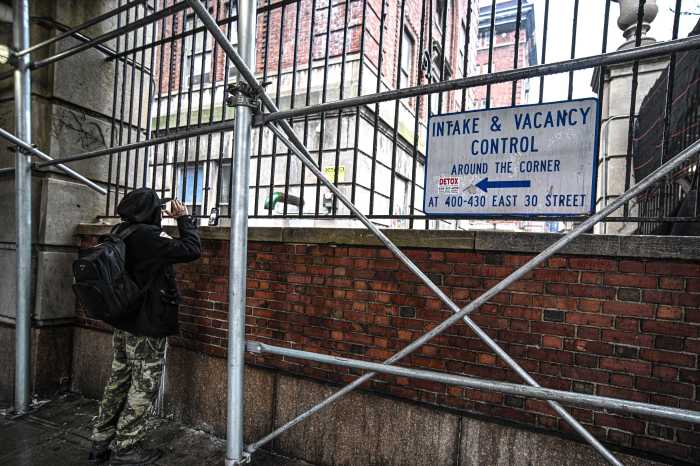By Sadef Ali Kully
After a rally at City Hall, advocates and opponents of a bill that would reduce city waste transfers in southeast Queens, Brooklyn and the Bronx attended a five-hour City Council hearing on the measure last week.
The bill, Intro 495, would reduce the amount of trash sent to the overburdened neighborhoods by 18 percent or about 2,700 tons per day until the city’s marine transfer station becomes operational.
City Council members Stephen Levin (D-Brooklyn) and Antonio Reynoso (D-Brooklyn), the chairman of the Council’s Committee on Sanitation and Solid Waste Management, are the main co-sponsors of the bill and conducted the Feb. 10 hearing. About 23 council members support Intro 495, while Queens council members Ruben Wills (D-Jamaica), Costa Constantinides (D-Astoria), Mark Weprin (D-Oakland Gardens), and Karen Koslowitz (D-Forest Hills) either oppose it or have not taken a stance on the bill.
“North Brooklyn, south Bronx, and southeast Queen have their lives disrupted on a daily basis by a constant flow of trucks traveling to and from transfer stations and are forced to endure significant health risks from polluted air,” Levin said.
In 2006, the city passed a bill that addressed an environment-friendly waste processing system and the concentration of waste in Brooklyn, Bronx, and Queens. Yet waste reduction has been slow and concerned City Council leaders want action taken immediately.
“My community has suffered for too long from the negative effects of handling almost 40 percent of the waste processed in the city,” added Reynoso.
North Brooklyn and South Bronx bring over 30 percent of the city’s waste, while Queens handles almost 10 percent, according to Reynoso. One of the main waste facilities in southeast Queens is located within a residential area close to downtown Jamaica.
“Industrial businesses such as waste facilities operate in close proximity to residential communities [which] suffer the most from constant bombardment by heavy truck traffic,” said Crystal Ervin, a member of Southern Queens Residents Environmental Justice Council.
Some of the concerns cited were related to environmental health issues that could arise from the constant flow of diesel-fueled trucks into residential neighborhoods.
“Diesel exhaust is dangerous for the health of residents—especially children,” said Dr. Geoffrey Collins, Pediatric Environmental Health Fellow at the Children’s Environmental Health Center of the Icahn School of Medicine at Mount Sinai.
Over a dozen advocacy groups in attendance thought that a more efficient sanitation system and increasing recycling would create more jobs, plus benefit the environment. Yet opponents of the bill, who also attended the rally and hearing, contended that reducing waste before the opening of the 91st Marine Transfer Station would create more traveling time for the trucks and job losses, defeating the purpose of the bill.
“If Intro 495 becomes law, garbage trucks will have to travel further to the transfer stations in northern Queens, western Brooklyn, and Staten Island. These trucks will then have to travel back to their yards, most of which are located in northern Brooklyn and western Queens. This will actually increase truck traffic,” said Tom Toscano, president of the New York Chapter of the National Waste and Recycling Association and Chief Financial Officer for Mr. T Carting Corp.
Tom Toscano along with others, testified in opposition to the bill, citing job loss, increased traffic, and higher costs for local businesses.
“While it seems that this bill has good intentions, it amplifies the problem it seeks to solve,” said Chris Hickey, regional director of the New York State Restaurant Association. “This law simply moves garbage from one place to another which will only exacerbate the problem and cause the loss of jobs in the process.”
Wills spoke out against the bill, citing job losses, during the hearing. Department of Sanitation Commissioner Kathryn Garcia did state that despite opposition there is an opportunity to negotiate the terms and conditions of the bill.
Reach Reporter Sadef Ali Kully by e-mail at skully@cnglocal.com or by phone at (718) 260–4546.

































